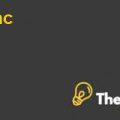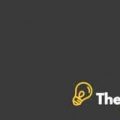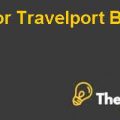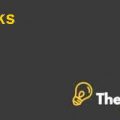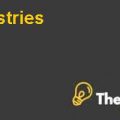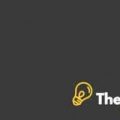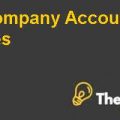
Issues identification:
Severe rivalry:
One of the main issue and threat face by Unilever is the level of competition among the competitors. The company has to encounter with the competition from all over the world. The main competitor of the company includes P&G, Kraft foods, Nestle and Henkel. These direct competitors are known as the giants in the industry. In addition to that, indirect competitors of the company are the ones who are providing substitutes to the company’s products.
Competition amongst Unilever’s brand:
Another issue that has been addressed in the following years is the competition among the company’s brand and the term used for this are known as self-cannibalization. The company is a giant and has various brands that comprise of contradictory brands that result in duplication of the company’s efforts and their resources. The issue was not so immense, but it has become one of the major issues for the company.
Economic situation globally:
With the passage of time, the economy is coming under recession and pressure in terms of economic utility. Although the world is at the recovery stage of recession, but still the traces and marks have left behind on the economy. The consumer’s purchasing power is continuously on a declining side because of the rise in inflation. Decrease in purchasing power of the customers resulted in decrease sales of the company. Specifically, the personal care products division has been affected the most by this recession. In addition to that, another issue faced by Unilever is the unstable exchange rate along with urbanization and improved globalization has become a major issue for the company to address.
Getting right leaders:
In many countries, the company is facing issues related to the Unilever’s ability to act promptly and wisely about unanticipated conditions in the market. This competence is largely connected with having the right people in the organization, thus; the company needs to bring right talent in the organization that has capabilities, skills and competencies to manage the business efficiently.
Cost of raw materials:
Achieving efficiencies in the production has become a major issue for the company to address. Management at Unilever wanted to maximize its performance and thus the company needs to manage the changing needs of the market to achieve efficiencies in productions and demands as well. This has become a major hurdle for the company’s success as the cost of raw materials are continuously increasing that has become a major issue for the company to address.
Political instability:
The political situation is getting unstable with the passage of time as the overall corporate taxes are getting higher internationally that makes difficult for Unilever to run its business all over the world. In addition to that, government from several countries are imposing tough laws and restrictions related to labor laws that make it difficult for the companies to find cheap labor.
Altering communication scene:
The management at Unilever believes that the biggest issue faced by the company is the changing communication scenario. The management has observed non-progressive state of mind between the agencies and brand intellectuals. The objective of the company is to produce a group of individuals who believes and practices brand communication.
Cultural differences:
As Unilever is an international brand and its products are used all over the world, there is a fair chance of cultural differences among every aspect of the brand. While going from one culture to another, Unilever has to add or remove features according to their beliefs and requirements of the targeted customers. In short, the company has to manage it according to the market and needs of customers.
Imitation:
Another major issue faced by the company in today’s world is related to the imitation of company’s original products. Imitation of the products has negative consequences on the brand image of the company and on the product itself as well. Imitated products are recommended and used by many individuals because of its low pricing. However, the quality of those products are not up to the standards and thus hugely impact brand equity of the customers (Gibson & Richard, 2005).
Research questions:
How to implement cultural practices of Henkel on Unilever?
Research objectives:
The objective of this research is:
- To analyze and identify learning practices of Henkel
- Another objective of the research is to find-out the cultural practices followed by Unilever.
- To analyze the frameworks that have been used By Henkel Corporation.
- To implement and compare the learning practices of Henkel on Unilever......................................
This is just a sample partial case solution. Please place the order on the website to order your own originally done case solution.


